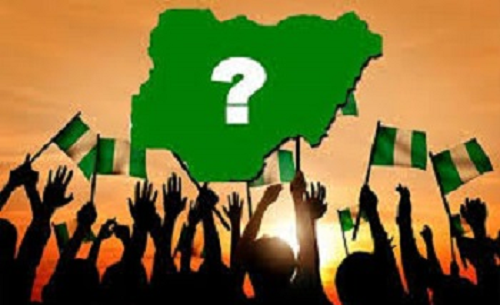Nigerians have called for a certain change in the affairs of the country for so long now that such a yearning cannot be left unattended to. Nigeria is sick, unsafe, and underdeveloped in such a manner that confers shame on Nigerians. States are struggling to exist in one piece and the Federal Government has been revealed to be simultaneously overpowered and inept. At a time when insecurity and economic downturn are eating into the health of Nigeria, we are often left with no choice but to fear for our future. If 2021 is not the right time to start thinking of a remedy to our collective failure in establishing a stable and prosperous nation, when is the right time? I think it is high time we faced the truth and made sincere efforts towards nation building. This is why we are going to discuss this constitutional reconfiguration of the Nigerian federation. Let us highlight what it takes to restructure Nigeria into a country with a system that works.
IN CASE YOU MISSED IT: On restructuring Nigeria: Emotions and desires (Part one)
 Source: Cover9ja. By Nairaland
Source: Cover9ja. By NairalandTo effect change on an entity as vast as a country like Nigeria is a daunting task, it will require great will and unquestionably wits. It will be no mean feat but it is achievable as a few recommendations and memoranda have been proposed with regard to the restructuring of Nigeria repeatedly. After many years of political observation and deep deliberation there are a number of sociopolitical principles which can help to stabilise Nigeria’s federation, improve the welfare of a large majority of Nigerians, and ensure the development of a healthy nation. There is also the pressing issue of the allocation of the country’s resources which is deemed to be unsatisfactory. We must devise a means to effectively and efficiently allocate these resources in such a way that is much more inclusive than what is currently obtainable in Nigeria.
READ ALSO: Resident doctors vs President Buhari: The insulting irony of a trip
If we must consider Nigeria as a true federation that is all inclusive and progressive, the country must ensure that every Nigerian state is autonomous and economically viable. The states of the federation must be powerful enough to support their own expenditure and independent enough to run a democratic system of government. As regards the economics of the state, fiscal resources should be generated internally and the state must be able to operate smoothly without help from the centre. This will obviously strengthen the executive and legislative arms of individual states. The states will also be made more accountable to their state-bound citizens and constitutional powers will be given to these states to define their internal structures, state government framework, a state police, and ethno-political setup. This way, they can control their local governments better or even decide how many local government areas the state needs. States with multiple ethnic groups will be able to ensure that their unique spectrum of peoples are well represented in the decision making process for the state. Interestingly, the current federal model has failed woefully in this regard. Identities and variables such as religion and ethnicity must be used to strengthen the state, not divide it. Furthermore, the moderate distribution of powers and fiscal resources between the states and the federation will help us to resolve our well known conflicts over the rightful control of local resources by the autonomous states.
DO NOT MISS: POINT BLANK: What sudden increase in petrol pump price can do to average Nigerian this April
We should know by now that some of the problems of our country have their roots in our constitutional makeup. These issues can be resolved by a constitutional shakeup; this may cause us to review the actual geographical structure of the country and reduce the number of states we have. Some people have argued that Nigeria is doing a terrible job at keeping 36 states. If we were to carve the country into a dozen states and name those states as “Regions” that have full control of their local resources, we will be doing much better as a country. The 12 regions of the country will be independent in revenue generation and spending, while they pay appropriate taxes to the Federal Government. The Federal Government itself will be made smaller and more efficient, the Senate will be merged with the House of Representatives under a unicameral legislature, and the judiciary will be strengthened against external influence from the executive. It then goes without saying that the restructuring of Nigeria requires a people’s constitution, not a revision of the 1999 Constitution through amendments, if we really want to address the fundamental issues of the structure of the Nigerian federation.


.png;w=120;h=80;mode=crop)
